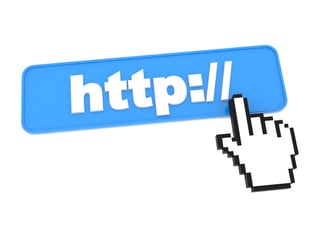W Ith all the online security issues these days, people may be nervous about giving your website any of their information - and with good reason. Trust is the foundation of a your relationship with your visitors, and customers. They have to know they can trust your site.
Ith all the online security issues these days, people may be nervous about giving your website any of their information - and with good reason. Trust is the foundation of a your relationship with your visitors, and customers. They have to know they can trust your site.
We see a lot of small businesses who's sites are not secure. They MUST be secured and fast!
The Whys and Hows of it are...
Why?
In addition to visitors and customers trusting your site, Google Chrome has begun to mark sites, who's current URL is HTTP:// as non-secure. So if you collect any information in the form of credit cards, medical histories, email addresses, and eventually almost any forms, of any kind on your site, Chrome will put up the following message:
"You should not enter any sensitive information on this site (for example, passwords, or credit cards), because it could be stolen by attackers."
Right now, Chrome shows HTTP-only connections with an information symbol - an "i" inside a circle next to your URL. Click on it and the message above drops down. On some computers the information is already popping up when you arrive at the site. Google will eventually label all HTTP pages with a red triangle and "not secure." Having your site pages HTTP will also effect Google giving your site good search rankings on their Search Engine Results Pages (SERPS).
Users expect a secure and private online experience when on your site. Google is making sure you get that experience by penalizing HTTP:// URLs.
What now?
Make sure your site is HyperText Transfer Protocol Secure (HTTPS.) In simple terms, make sure your website's URL reads HTTPS:// and not HTTP:// With HTTPS, the connection encrypts data to prevent eavesdropping, protect the integrity of data to prevent corruption in transfer, and provides authentication to ensure communication only with the intended website. Here's how:
Step 1: Host with a dedicated IP address. In order to provide the best security, SSL certificates require your website to have its own dedicated IP address.
Step 2: Buy a certificate.
Step 3: Activate the certificate.
Step 4: Install the certificate.
Step 5: Update your site to use HTTPS.
Make sure someone in your company gets this done soon, or hire someone to do it for you.
Today, where concerns about information security are on the rise, and the need to protect personal data is of the greatest importance, these new security indications will allow users to make an informed decision about which sites to trust with any of their information and which sites to pass on. Make sure your site doesn't get passed up for this reason.
Want to learn more about Search Engine Optimization? Download 18 SEO Myths You Should Leave Behind in 2017.


